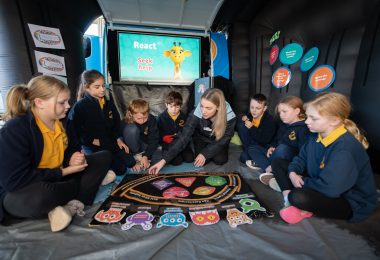Building Healthy Gaming Habits
Tuesday, 11 Jan 2022

Jump too...
The best way to manage gaming in the home is to get involved in what your kids are playing. Your kids will be much more likely to follow your advice if you show them you are genuinely interested in their gaming life.
Here are 4 ways you can build healthy gaming habits with your children.
1. Get Involved
- For younger kids, choose their video games for them.
- Look for games that don’t contain violence and are age appropriate. Ask other parents for advice and suggestions of good games.
- As your kids get older, talk to them about the games they like, and be there when they purchase their game.
- Talk with your kids regularly about their gaming interests, who they play with online and help them understand the risks of online gaming.
- Where possible, have the computer or gaming console in a public area of your house so you can closely monitor what games your kids are playing.
- If you are purchasing games, buy games that can be played by multiple people in your family
- Encourage your kids to let you know if they experience anything online that worries them or makes them feel uncomfortable.
2. Educate Yourself
- Chat with your kids from a young age about what games you may find inappropriate
- Violent and sexist content can pop up from time to time in games that your teens may play
- Instead of outright banning them from these games, talk to them about how these games can be offensive
- The more they understand where you are coming from, they will able to carry these values on
- Always check the rating and descriptions of any games before you or your kids purchase
- Encourage critical thinking
- Discuss with your kids how believable events or story lines in a game would play out if they happened in real life
- Challenge any stereotypes when you see them, and encourage your kids to do the same
- Talk to your kids about violence in games and how they are used as solutions to problems
- Think about other non-violent solutions to the same problem and encourage them to play games that allow for non-violent solutions
- Consider playing time
- Avoid banning gaming outright. It is an important part of your kid’s social lives
- Make ground rules around how much time your kids can play games per day and stick to these rules. An example can be “not until homework is completed” or “only on the weekend” rules
- If time limits are imposed – keep in mind that some games may take a certain amount of time to complete
- While your kids may become obsessed with the game they are currently playing, remember the novelty of this will pass and other activities with steal their attention
3. Encourage Other Activities
- Encourage and support your kid’s participation in other activities. If they don’t show any interest in anything other than games, try looking for other activities that may be similar to their favourite game. For example, if your kid likes fantasy games, try encouraging them to read a book with fantasy themes
4. Build Healthy Habits
- Ensure that your kids protect their privacy online eg. using a screen name instead of their real name
- Educate your kids on the importance of not clicking on any links provided by strangers. An example of this are ‘cheat’ programs. They may help with game play, but can also expose their device to viruses or malware
- Have an agreement with your kids on how to switch off. This can be a timer that signals game time is almost over and have consequences if they do not follow this
- Where possible, help your kids make wise decisions for themselves, rather than telling them what to do










